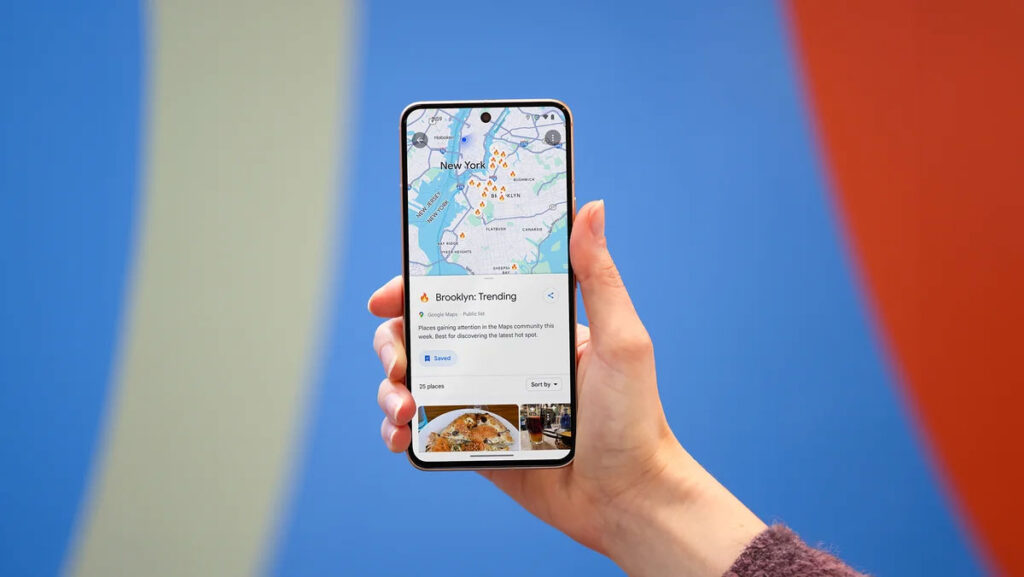Google Maps and Waze are entering their “Gemini era” with a handful of new artificial intelligence-powered features to super charge navigation and discovery.
In a briefing with Google, Maps and Waze representatives detailed some of the new features that are coming out. For Maps, Google said it’s expanding the AI-powered ‘Immersive View’ feature to 150 cities globally, with the rollout starting this week.
Immersive View uses computer vision and AI to merge Street View and aerial images to form a seamless 3D view of supported cities. Users can even scroll through weather and other changes throughout the day. Earlier this year, Immersive View expanded to five Canadian cities, and now Google is expanding it to Vancouver and Surrey by the end of this year.
Google also showed off Gemini-powered curation tools in Maps. For example, when users ask natural language questions, Gemini can now surface curated options showing places that fit the request. Moreover, Google will use Gemini to summarize reviews, allowing users to get an idea of what to expect from a place without having to read through hundreds of reviews.

In a similar vein, Maps is getting a Gemini-powered ‘Ask Maps about this place’ capability. Users can ask queries about a specific place they’re looking at in Maps and get relevant answers grounded in Maps’ data.
These Gemini features will start rolling out in the U.S. on Android and iOS this week and will expand to Search in the coming months.

Google Maps will also enhance navigation in several ways, including adding the ability to report weather disruptions. It’s also making it easier to explore along your route (rolling out globally this week).

Users can view parking options while navigating and easily save their parking location in Google, marked on the map, for future reference. Finally, in 30 U.S. metro areas, Google Maps will start showing additional navigation details, including lanes, crosswalks, and more, to help when driving. It’s unclear if or when that feature will come to Canada.
Waze users can report with voice
Waze users are getting some helpful new features as well. The most notable is Gemini-powered ‘Conversational Reporting.’ Now Waze users can press a button and say what they’re reporting, rather than having to tap a symbol on the screen. And the Waze app can ask follow-up questions to get more detail from drivers. This will come to Waze on Android and iOS.
Elsewhere, Waze is adding school zones to its maps and a Waze for Cities program to bring local details like road closures to maps.
Google Earth is getting some updates as well, including an ‘Ask Google Earth’ feature. Like the ‘Ask Maps’ feature above, this is a Gemini-powered tool allowing people to use natural language queries to build custom maps. In the briefing, Google showed an example of asking Google Earth to map electric vehicle (EV) chargers in an area relevant to nearby shopping centres. It looks like a fairly powerful tool, assuming the AI powering it proves reliable. Ask Google Earth will launch in an early pilot to trusted testers in the U.S. next month.
While some of the above features are U.S.-only, Google did confirm to MobileSyrup that the driving features will start rolling out globally this week and Canadians can expect some of the other features starting in 2025.
Header image credit: Google
MobileSyrup may earn a commission from purchases made via our links, which helps fund the journalism we provide free on our website. These links do not influence our editorial content. Support us here.


